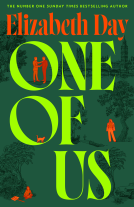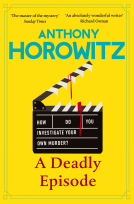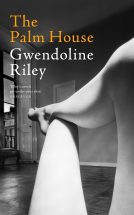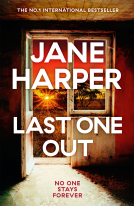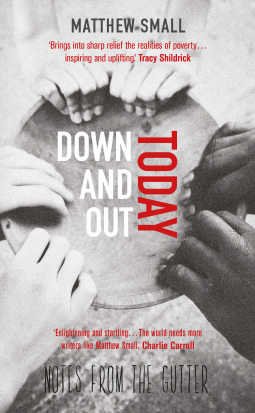
Down and Out Today
Notes from the Gutter
by Matthew Small
This title was previously available on NetGalley and is now archived.
Send NetGalley books directly to your Kindle or Kindle app
1
To read on a Kindle or Kindle app, please add kindle@netgalley.com as an approved email address to receive files in your Amazon account. Click here for step-by-step instructions.
2
Also find your Kindle email address within your Amazon account, and enter it here.
Pub Date 1 Oct 2015 | Archive Date 10 Feb 2016
Paperbooks | Legend Times Group
Description
What does poverty mean today? Writer Matthew Small seeks to answer this question and witness the similarities and differences between poverty in the UK and India.
Poverty stretches across all of humanity and by travelling East, Small encounters the raw faces of poverty in India’s slums; he works in a leprosy community, joins the Sisters of Mercy on the littered yet exhilarating streets of Kolkata. He then returns to the UK, to Bath, to see what the passing of three months means to those who are scarred by one of the most unglamorous of all humanities’ ills, being poor.
Small engages with different community members who are living with poverty, to answer these long standing questions: What’s keeping them down? What’s pushing them out? And how can we move forward?
Advance Praise
‘Matthew Small has produced a text which is both enlightening and startling. Illuminating those corners of society which mainstream literature so often leaves in the shadows, the world needs more writers like Matthew Small: writers willing to get their hands dirty; writers willing to listen, observe and document with compassion and candour.’ Charlie Carroll
‘Down and Out Today illustrates very well the sheer brutality of how societies, particularly rich ones like the UK, often treat those with the least. The book is deeply troubling on many levels but at the same time it is inspiring and uplifting as difficult life stories are related with huge compassion.’ Tracy Shildrick
Praise for Matthew’s writing:
‘The biology of Israel/Palestine simply and beautifully revealed...’ Jon Snow, Journalist and Presenter
Available Editions
| EDITION | Paperback |
| ISBN | 9781785079962 |
| PRICE | £9.00 (GBP) |
Average rating from 5 members
Featured Reviews
 Susan R, Reviewer
Susan R, Reviewer
In a time when our television screens are filled with programmes about people on benefits, author Matthew Small has taken a very topical subject to focus on. What does it mean to be poor? As you can see from the title, this book was partly inspired by George Orwell’s, ”Down and Out in Paris and London,” and, in the same way, the author focuses on two different places. Part of the book takes part in Bath and then he travels to India and Nepal.
“Down and Out in Paris and London,” was published in 1933 and I recall, when I last re-read it, thinking that many of the points Orwell made were still valid today and this book suggests I was correct in this assumption. Like Orwell in Paris, Matthew Small spends his time in Bath working, living fairly simply (in a borrowed caravan), with low funds. While in Bath, he spends a lot of time investigating the various charities and food banks that abound in a city more known for tourism, Jane Austen and the baths than for poverty. Also, like Orwell, the author writes really moving journalism and tells the story of the homeless and those who use the various charity resources in the city. There is also a side story about his time spent on a demonstration in London, which is extremely interesting.
During his book, Small is completely non judgemental about his subjects, as are those who work for the charities, attempting to help those who need assistance. With benefits being cut, punitive punishments and, often, chaotic lives, it is easy to label people; but the author has to resist this and he does so extremely well. Many of those in poverty are not homeless and are viewed as using resources that are not really for them, while some of the homeless people that the author interviews prefer to stay away from the various charities available. There is also, of course, the important question of whether those we see as poor view themselves as such and what it means to be living in poverty in a country many view as rich.
As a counterpoint to this, the author travels to both India and Nepal, where poverty is more obvious; rather than the hidden, dispossessed poor in Bath. In both India and Nepal, the author finds more shocking, obvious concerns, such as children sleeping on the street and the way the physically handicapped or mentally ill are viewed. He works with charities, investigates slums and talks with everyone he comes across about what being poor – either physically or spiritually – means to people.
This is not a light read by any means, but it is an important book. The authors interest in the subject begins in Paris, where he views camps of homeless people; part of the influx of immigrants that have recently poured into Europe. Whatever your political beliefs or opinions, there is no doubt that issues of poverty and homelessness are more apparent, and pressing, than ever. Whether it is people sleeping on the street in India or families in emergency accommodation in a UK city, inequality is everywhere – in education, lifestyles and health, it blights, and it damages, not only individuals, but society.
At times, the author wonders whether charity embroils those struggling in a never ending cycle of poverty, rather than helping them. At others, he wonders whether the young Indian man who offers to act as his guide and is rewarded with the price of a shoebox, supposedly to help him earn a living, was just using him as a source of guilt money. Would he use it to buy a shoebox? Would Dean, the book loving seller of “The Big Issue,” spend the change given to him on something useful, or tobacco? In the end, the author asks, does it matter? A charity worker in Bath looks at those who arrive for a hot meal, tea and company and states flatly that, if they are here, then they need help and deserve to receive it. You may not agree, but I suspect you will be unable to read this book and remain unmoved. Lastly, I received a copy of this book from the publisher, via NetGalley, for review.
This book is the author’s personal reflection on poverty. It is not a scientific or sociological investigation on the matter, only a deeply personal research about what it means to be poor in the world today, and in different parts/cultures in the world. This is what made the book so interesting.
The author was in the UK, India and Nepal to make comparisons, speak with people, meditate and reflect, and by doing so he also helped us deepen our views on this subject and think on what it means to be poor today. Is it simply the lack of money, or also the inability to conform with society’s rules and structure? Does living from agriculture mean you are poor? In most places yes, but it can also signify you always have something on your table, something that many times you struggle on a big city.
Can you be at the same time extremely poor by today’s standards, live in misery, and still be joyful and happy?
This book related to many of my own personal reflections, as I sometimes wonder myself what it means to be compassionate to others, how could I do more, what can I do not to be enslaved by today’s definition of a good life. It is very difficult to keep your head high and your thoughts aimed upwards and not be ensnared by all the screens that push you down and prevent you from seeing the beauty in nature, life and others.
I agree with the author when he says that something must change with the way we live our lives, as the world as we know it is no longer sustainable and we are poisoning the same thing that can keep us alive.
I now feel like reading more books from this author, and I feel grateful for the opportunity I was given to read this one.
Recommended to everyone who likes to think about the world today, and to read about social issues.
https://peixinhodepratablog.wordpress...
I wonder what most people, if brought together around a table, would give thanks for. Would they be thankful for the iPhone in their pocket, the television, the car on the drive, the roof over their head, the wage slip at the end of the month, the salary at the end of the year, the job, the security, the warmth of another to sit beside and carve out roast turkey with, sharing stories and being together? Would they be thankful for life? If they are healthy, would they be thankful for this? To have sight, to process movement, physical freedom?
